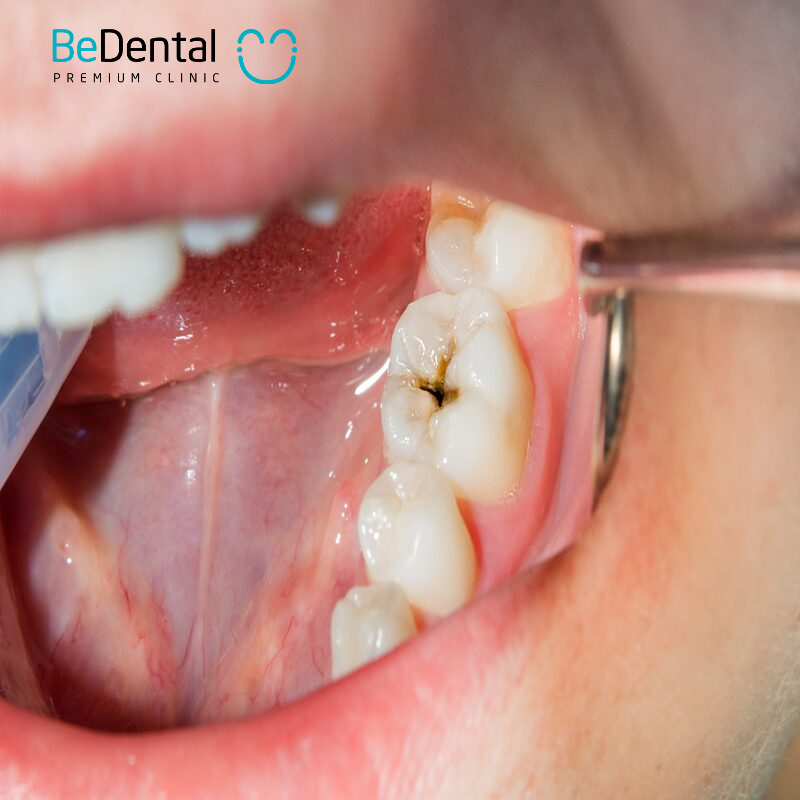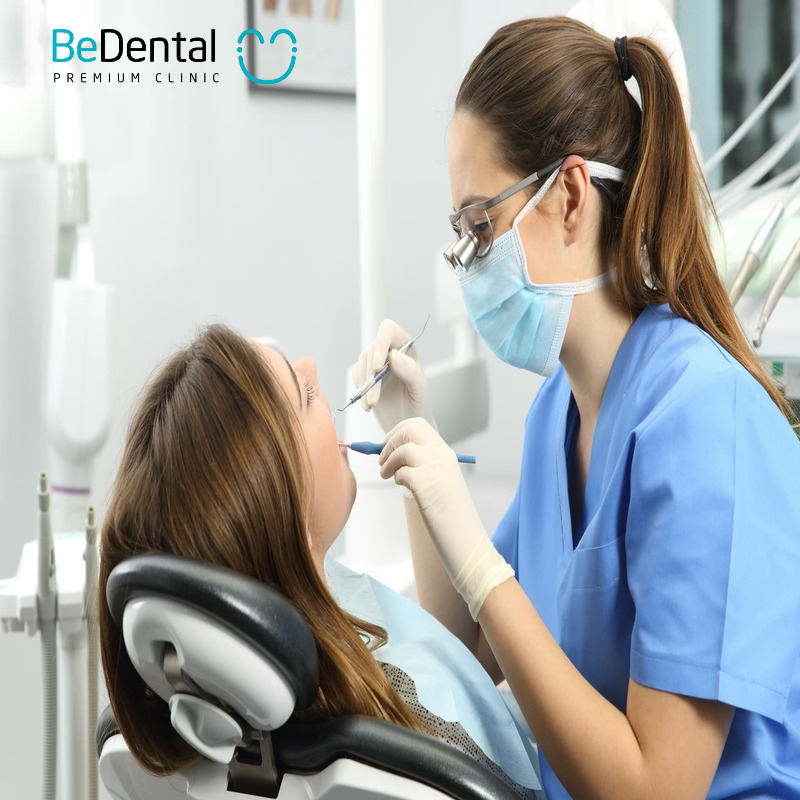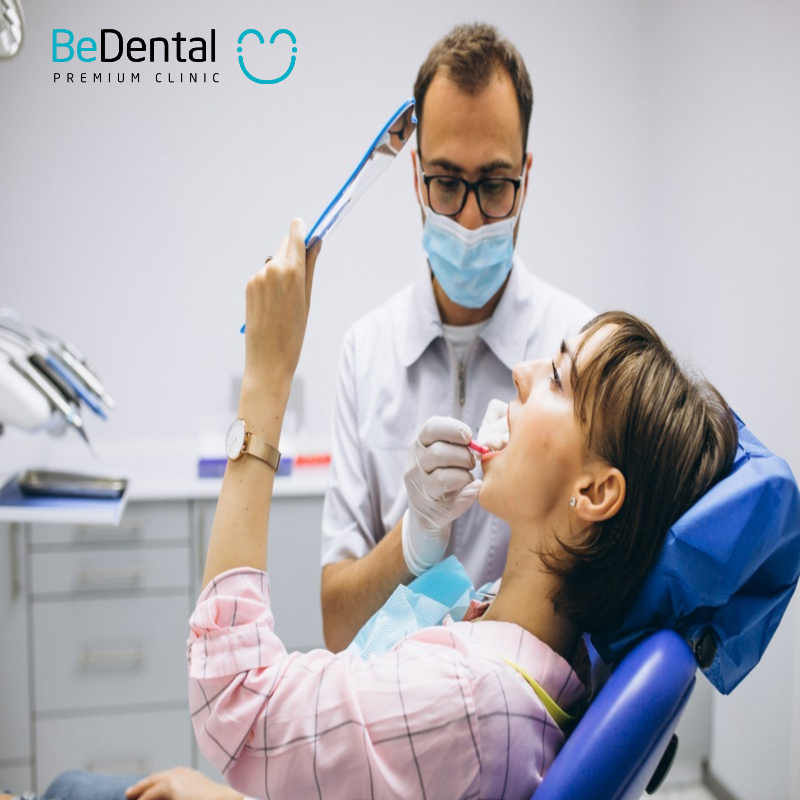The teeth problems not only impact oral health but can also result in severe complications, including infections and prolonged pain. Thus, early recognition of symptoms and a clear understanding of treatment options are vital. This article will explore common teeth problems and how to treat them, helping you make informed decisions about your oral health care.
Diverse Dental Treatment Methods Today
Current dental treatment methods are varied, ranging from non-invasive to invasive measures. For common problems with teeth such as tooth decay, treatment may include the use of fluoride to strengthen enamel or dental fillings to repair cavities. For gum disease, a deep cleaning procedure, which involves removing plaque and caring for the gums, can help prevent infection and restore gum health. Additionally, extracting wisdom teeth and addressing dental injuries are common treatments in dentistry.

Prevention remains the most effective approach to maintaining oral health. Good oral hygiene habits, a balanced diet, and regular dental check-ups help in the early detection of issues and timely treatment. Having a proper understanding of common teeth problems and how to treat them can lead to healthier, more confident smiles.
Common Teeth Problems
Common teeth problems include tooth decay, gum disease, misaligned wisdom teeth, and dental injuries.
Teeth and gum problems: Causes and Treatment Solutions
- Causes: Tooth decay is one of the most prevalent teeth problems and usually arises from multiple contributing factors. Sugary foods are a leading cause, as candies, pastries, and soft drinks promote bacterial growth in the mouth. These bacteria convert sugar into acid, harming the enamel.

Poor oral hygiene is also a significant factor, as failing to brush and floss regularly leads to plaque buildup. If not removed, this plaque hardens into tartar, increasing the risk of cavities. In summary, a combination of an unhealthy diet and poor hygiene practices primarily causes tooth decay.
- Treatment Methods for Tooth Decay: Tooth decay can cause uncomfortable, sharp pain and lead to serious complications if not treated promptly. Common symptoms include toothache and increased sensitivity, making eating difficult. Non-invasive methods like fluoride treatments and fillings are applicable for early-stage decay.
For more severe cases, invasive methods such as crowns or root canals may be necessary. Early detection and treatment are crucial for maintaining oral health and preventing unnecessary damage to teeth and gums.
- Causes: Gum disease, also known as gingivitis, is an inflammatory condition affecting the gum tissue around teeth. The primary cause is the accumulation of plaque and tartar due to improper oral hygiene. When plaque is not removed, bacteria within it multiply and produce toxins, leading to gum inflammation.
Other factors that may increase the risk of gum disease include smoking, vitamin C deficiency, hormonal changes (such as during pregnancy or menstrual cycles), diabetes, and certain medications that cause dry mouth. These factors can compromise the gum’s self-defense abilities and heighten the risk of inflammation.
- Treatment Methods: Treating gum disease usually starts with a deep cleaning at the dental office to remove plaque and tartar. After addressing the causes of inflammation, the dentist may recommend an appropriate at-home oral hygiene regimen, including brushing at least twice a day and daily flossing. In more severe cases, treatment with antibiotics or surgery to regenerate gum tissue may be required.
Additionally, lifestyle changes such as quitting smoking, maintaining a healthy diet, and regular dental visits are critical for preventing and treating gum disease. Timely detection and treatment not only protect oral health but also contribute to overall body wellness.
See more: HT SMILE- EXCELLENT ADVANCEMENTS COMPARED TO OTHER GERMANY PORCELAIN TEETH
Misaligned Wisdom Teeth: Causes and Treatment
- Causes: Wisdom teeth, or the third molars, are typically the last teeth to emerge, usually between ages 17 and 25. A common cause of misaligned wisdom teeth is a lack of space in the jaw. Many individuals have smaller jaws relative to the number of teeth, resulting in insufficient room for the wisdom teeth to grow straight.
Other contributing factors include genetics, uneven jaw and tooth development, and existing teeth problems like gum disease, which increase the likelihood of misalignment. Misaligned wisdom teeth can lead to pain, infection, and issues for adjacent teeth.
- Treatment Methods: Treatment for misaligned wisdom teeth depends on the severity of the condition and the symptoms experienced by the patient. If the wisdom teeth do not cause any issues, the dentist may recommend monitoring without intervention. However, if misalignment results in pain or impacts other teeth, wisdom tooth extraction is often the best solution.
This process is typically performed by an oral surgeon or an experienced dentist. After surgery, patients need to follow care instructions to minimize pain and prevent infection. Regular check-ups and consultations are essential for monitoring oral health and intervening when necessary.
Dental Injuries: Causes and Treatment
- Causes: Dental injuries(From MedicineNet) often occur due to accidents like falls, sports collisions, or traffic accidents. Children are particularly susceptible to dental injuries due to their active nature and participation in physical activities. Other causes include bad habits like nail-biting or chewing on hard objects, leading to tooth fractures or looseness. Dental injuries can damage not only the surface of the teeth but also the dental pulp, causing pain and affecting overall oral health.

- Treatment Methods: Treatment for dental injuries depends on the type and extent of the damage. If a tooth is chipped or partially broken, the dentist may suggest measures like dental bonding or crowns to restore its shape and function. In cases of complete tooth loss, implants or dentures may be necessary to replace the missing tooth.
If the injury affects the dental pulp, root canal treatment may be required to remove damaged pulp tissue and prevent infection. Additionally, regular check-ups and monitoring after a dental injury are crucial to ensure no complications arise.
Effective Dental Treatment Methods
There are two fundamental dental treatment methods: non-invasive and invasive treatments.
Non-Invasive Treatments:
- Fluoride: This is the most common method for preventing and treating early-stage tooth decay. Fluoride strengthens tooth enamel and helps repair minor damage before it develops into cavities. Dentists can apply fluoride in gel, spray, or rinse form at the office or recommend fluoride toothpaste for home use.
- Non-Invasive Fillings: Non-invasive materials can restore damaged teeth without the need for extensive procedures.
Invasive Treatments
- Dental Fillings: For more severe cases of tooth decay, dental fillings are a common approach. This involves removing the damaged portion of the tooth and replacing it with a filling material such as composite or amalgam. This process restores both the shape and function of the tooth.
- Dental Crowns: When a tooth is significantly damaged or discolored, a dental crown provides an effective solution. Crowning protects the underlying tooth and enhances its appearance while ensuring proper chewing function.
- Dental Implants: For teeth that are lost or irreparable, dental implants are the best option. This procedure involves placing an implant post into the jawbone and then attaching a crown on top, effectively restoring the tooth and enhancing the natural beauty of the smile.
These treatment methods not only restore oral health but also enhance patients’ quality of life.

FAQs
Can decaying teeth cause sinus problems?
Yes, decaying teeth, especially upper molars and premolars, can cause sinus problems. The roots of these teeth are located close to the maxillary sinuses, and infections or abscesses in these teeth can spread to the sinuses, leading to a condition called sinusitis of dental origin. Symptoms may include nasal congestion, facial pain, and pressure around the sinuses.
Can infected teeth cause heart problems?
Yes, teeth problems such as infection can potentially lead to heart problems. Untreated dental infections can result in bacterial endocarditis, a serious condition where bacteria from the mouth enter the bloodstream and infect the heart lining or valves. This is more likely in individuals with pre-existing heart conditions or weakened immune systems. Gum disease (periodontitis) has also been linked to an increased risk of cardiovascular issues, such as heart attacks and strokes, due to chronic inflammation.
Can problems with teeth cause headaches?
Yes, teeth problems can cause headaches. Issues like tooth infections, bruxism (teeth grinding), or TMJ (temporomandibular joint) disorders can lead to referred pain in the head, neck, or jaw. Poor alignment of teeth can also strain jaw muscles, contributing to tension headaches or migraines.
Can iron deficiency cause teeth problems?
Yes, iron deficiency can lead to teeth problems indirectly. Iron is essential for healthy red blood cell production and oxygen transport. A deficiency can weaken the immune system, making gums and oral tissues more susceptible to infections like periodontitis. Additionally, people with severe iron deficiency (anemia) may experience symptoms like glossitis (inflammation of the tongue), mouth ulcers, and a higher risk of oral infections.
BeDental
BeDental offers a comprehensive range of top-tier dental treatment services in Vietnam. From preventive care and cosmetic dentistry to advanced procedures like dental implants and orthodontics, the clinic is equipped to address all teeth problems. Their team of skilled professionals is dedicated to delivering high-quality care using the latest technology and techniques. BeDental prioritizes patient comfort and satisfaction, making it a leading choice for those seeking exceptional dental services in Vietnam.
See more: What You Need to Know Before Getting Dental Implants
BEDENTAL - TOP STANDARD DENTISTRY SYSTEM
In HANOI
Address 1: 7B Thi Sach St, Ngo Thi Nham, Hai Ba Trung Dist, Ha Noi. - 0934.61.9090
Address 2: No 129 Hoang Ngan, Yen Hoa, Cau Giay Dist, Ha Noi. - 0934.61.9090
In HO CHI MINH
Address 1: 53 -55 -57 Pho Duc Chinh St, Nguyen Thai Binh, Dist. 1, Ho Chi Minh. - 0766.00.8080
Working: 9am - 8pm everyday
Website: https://bedental.vn/en/




